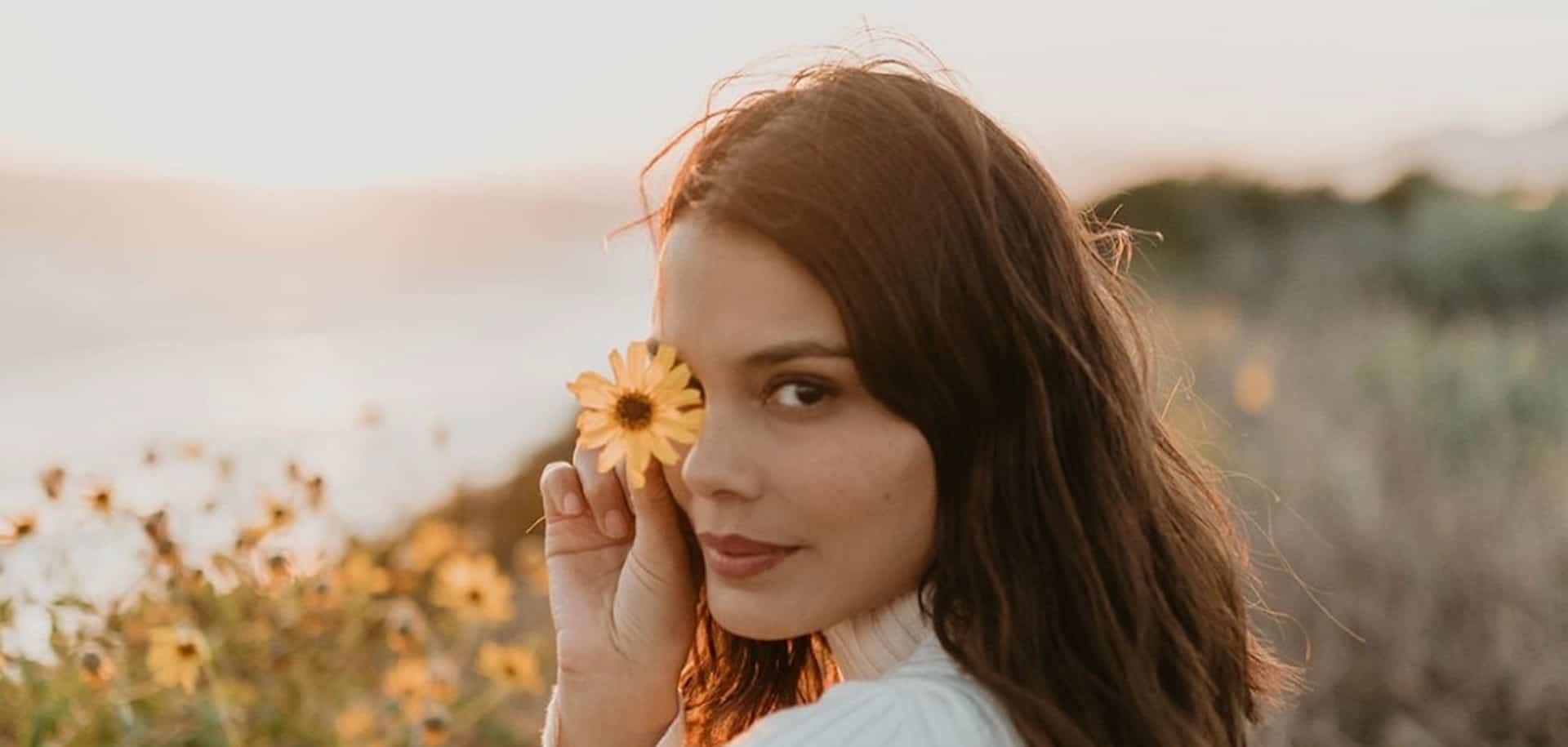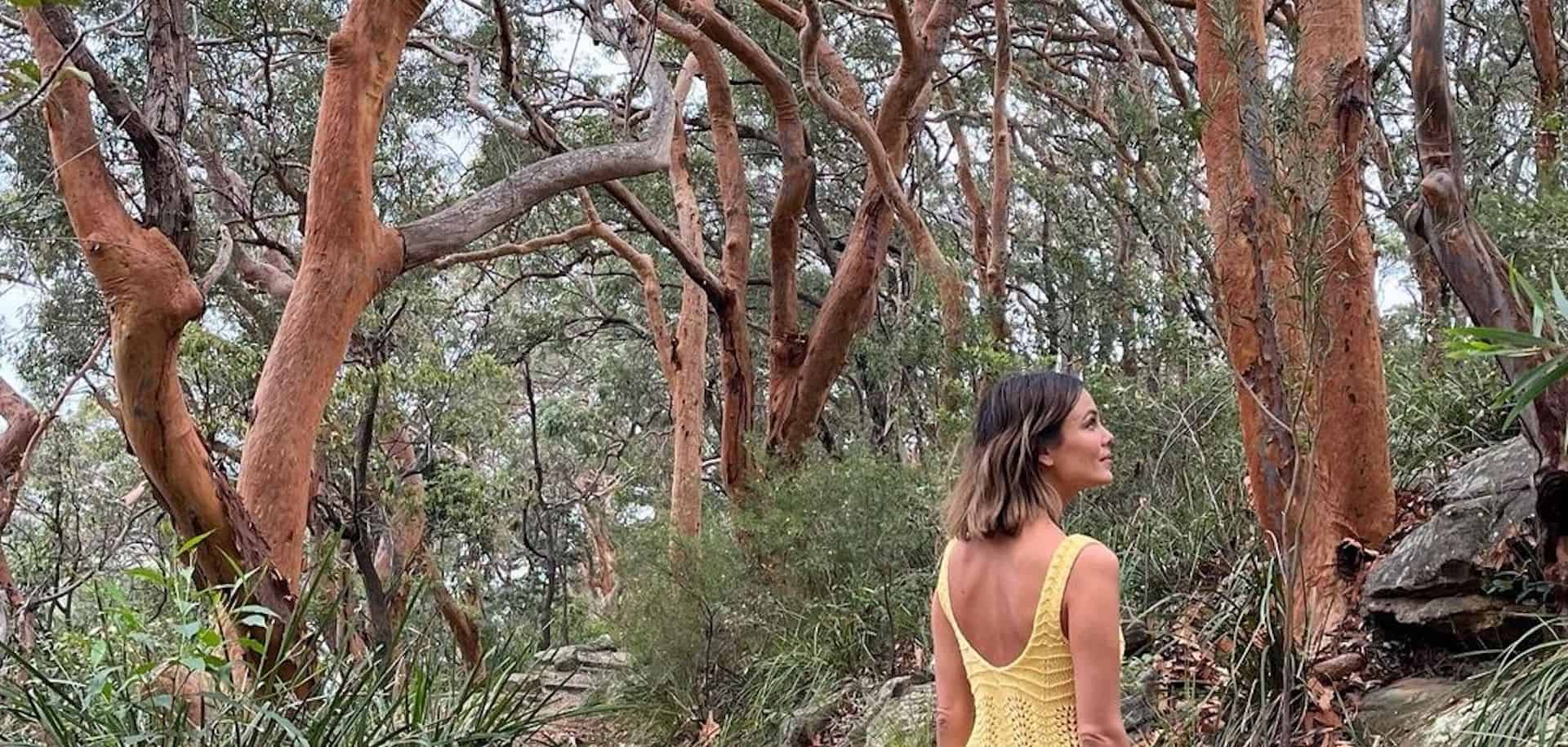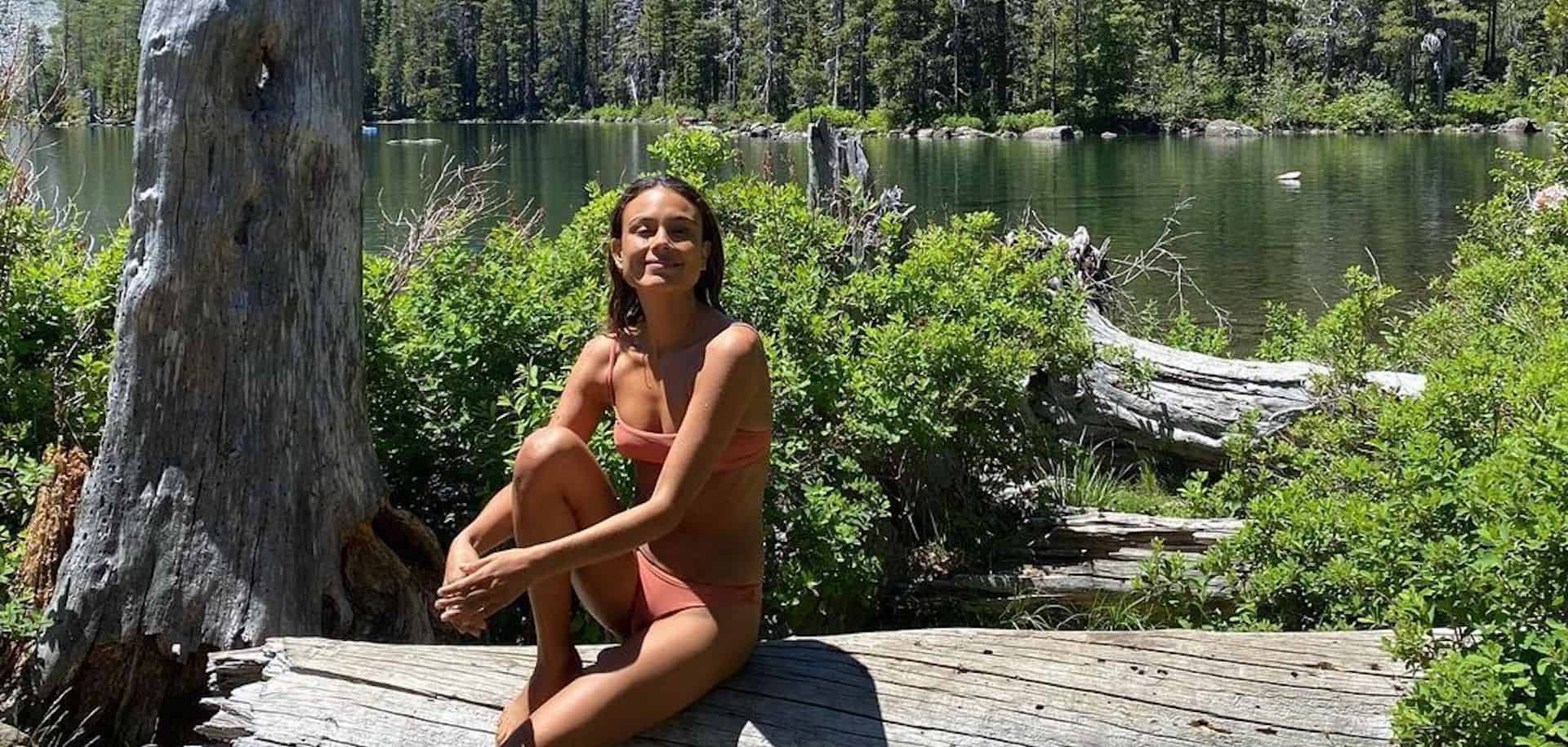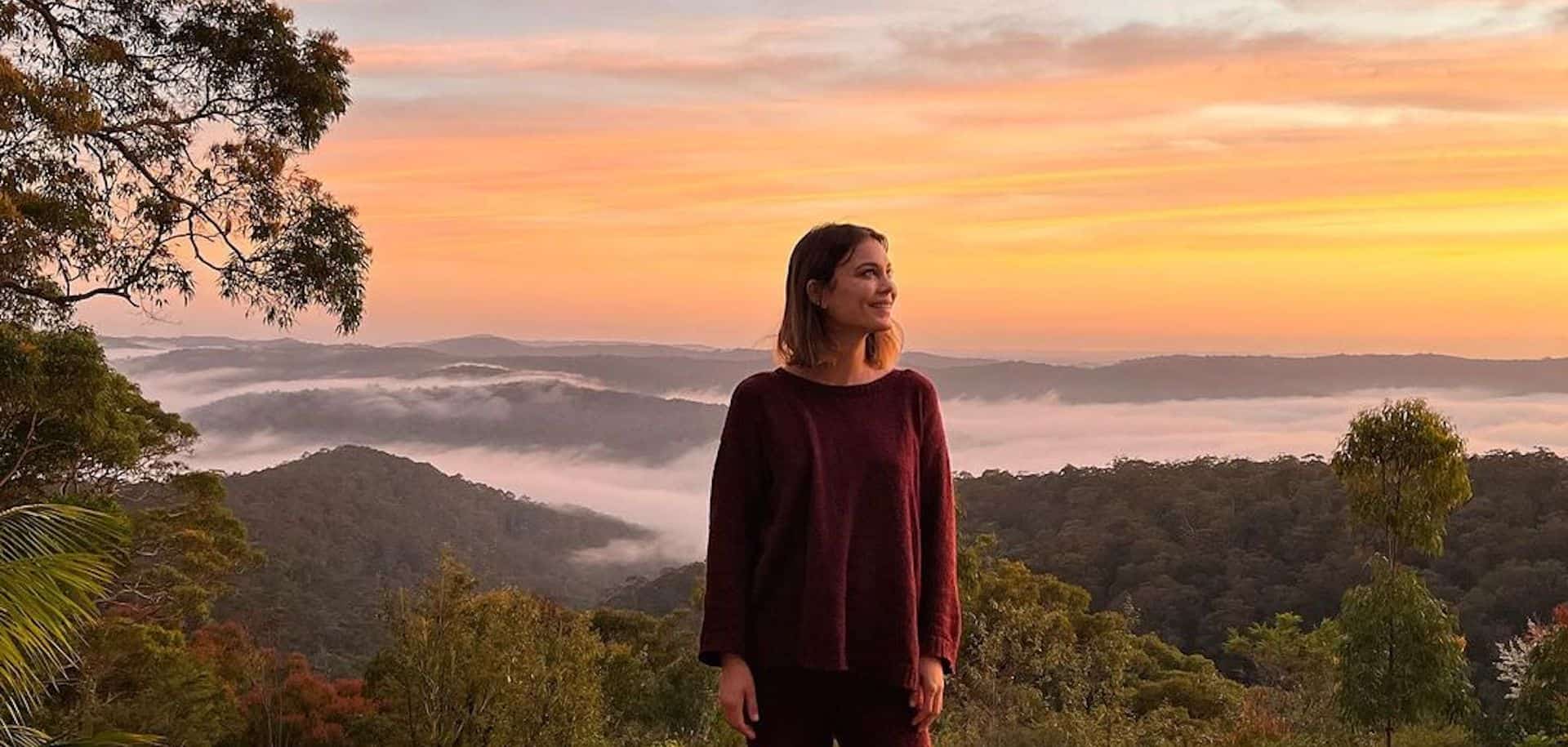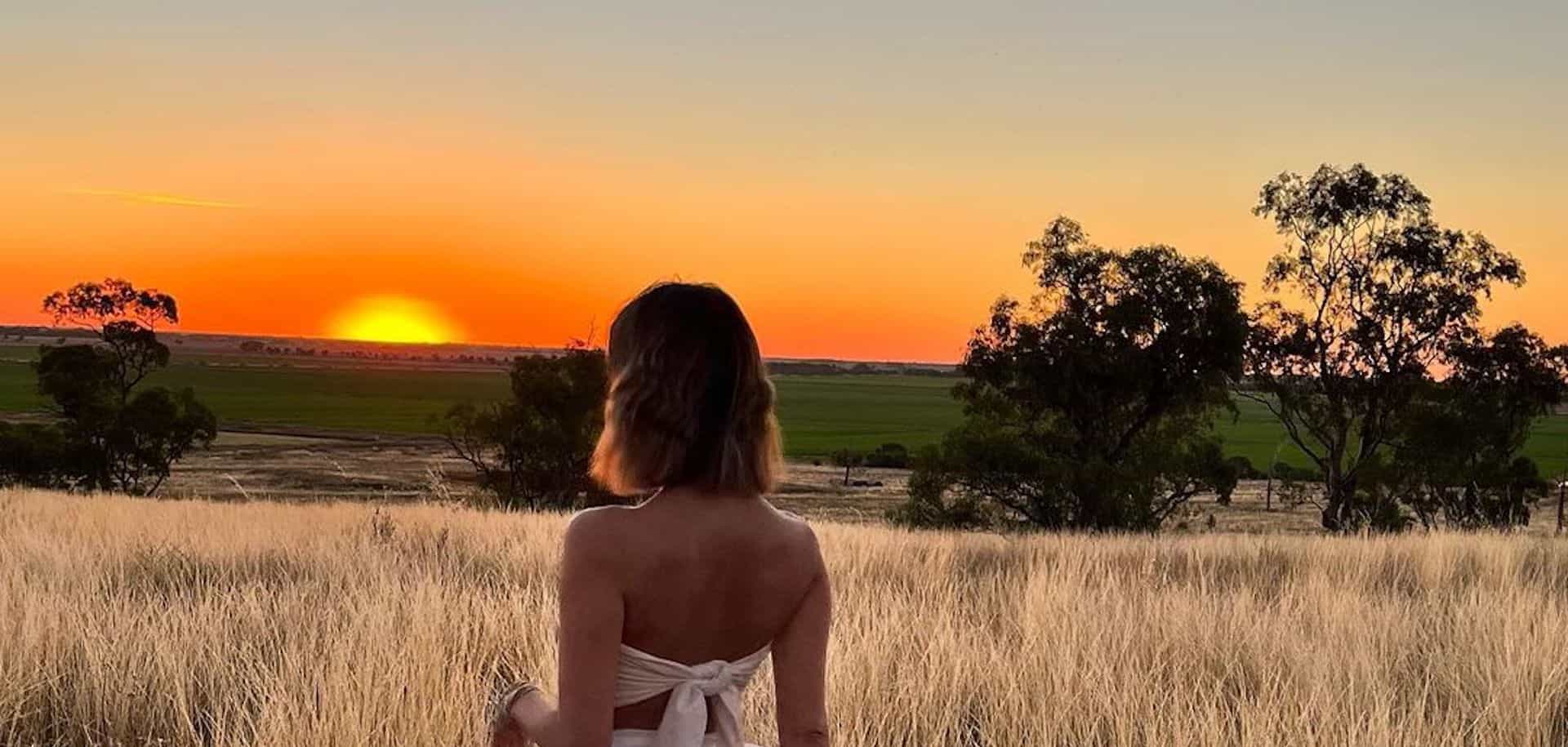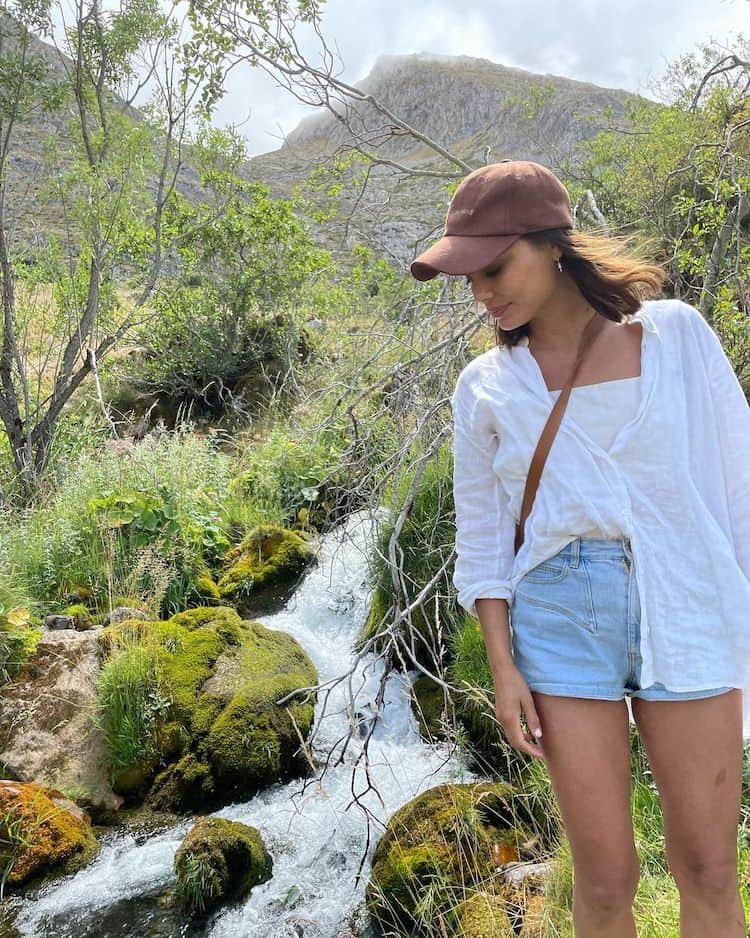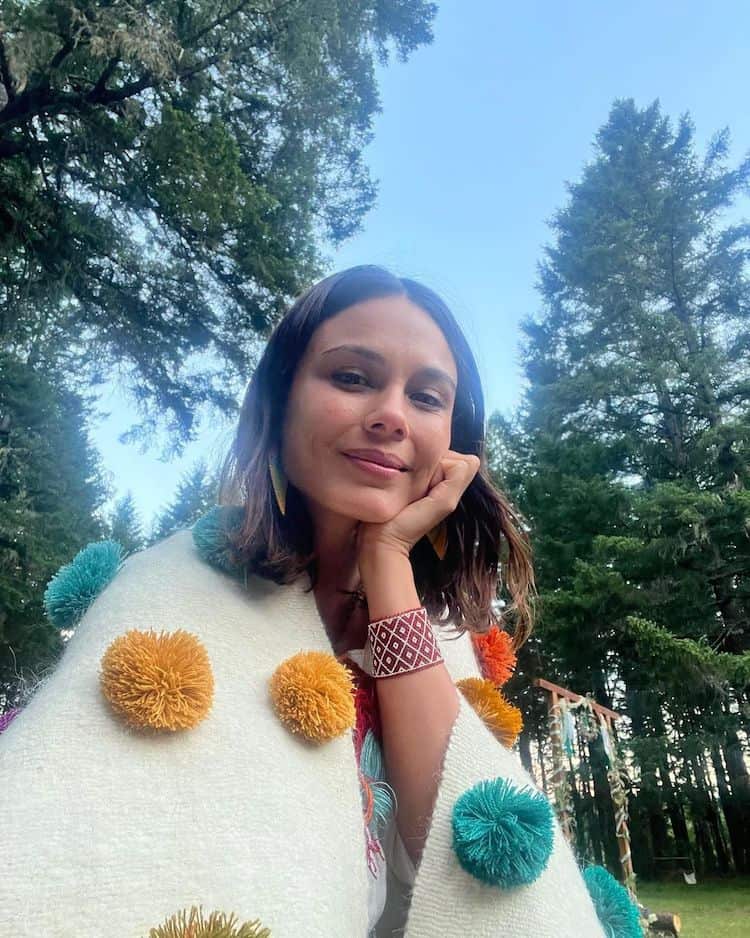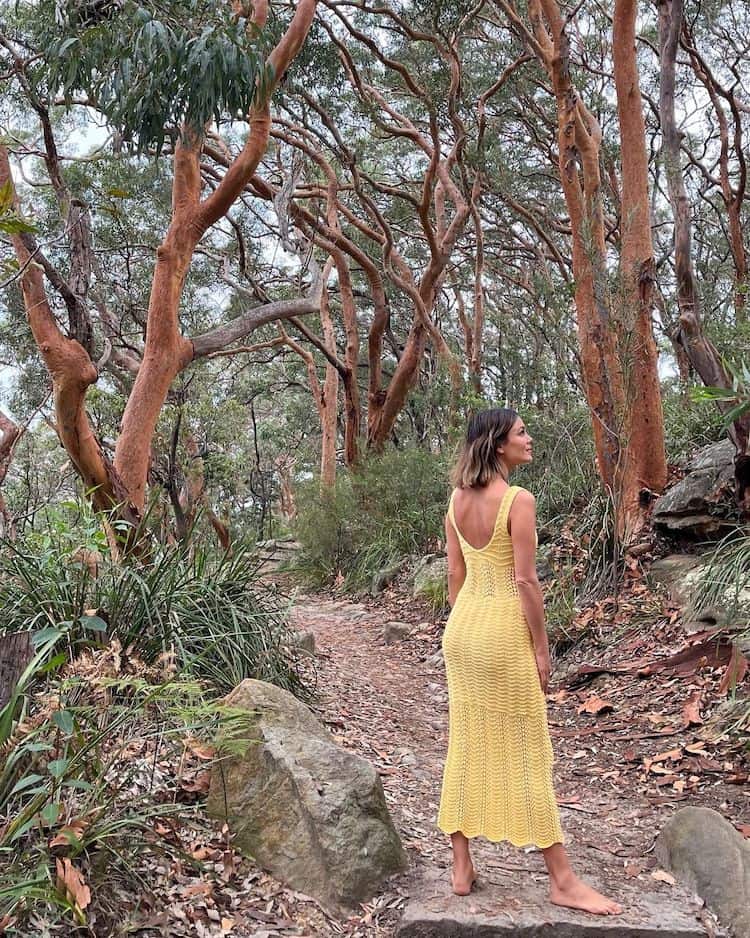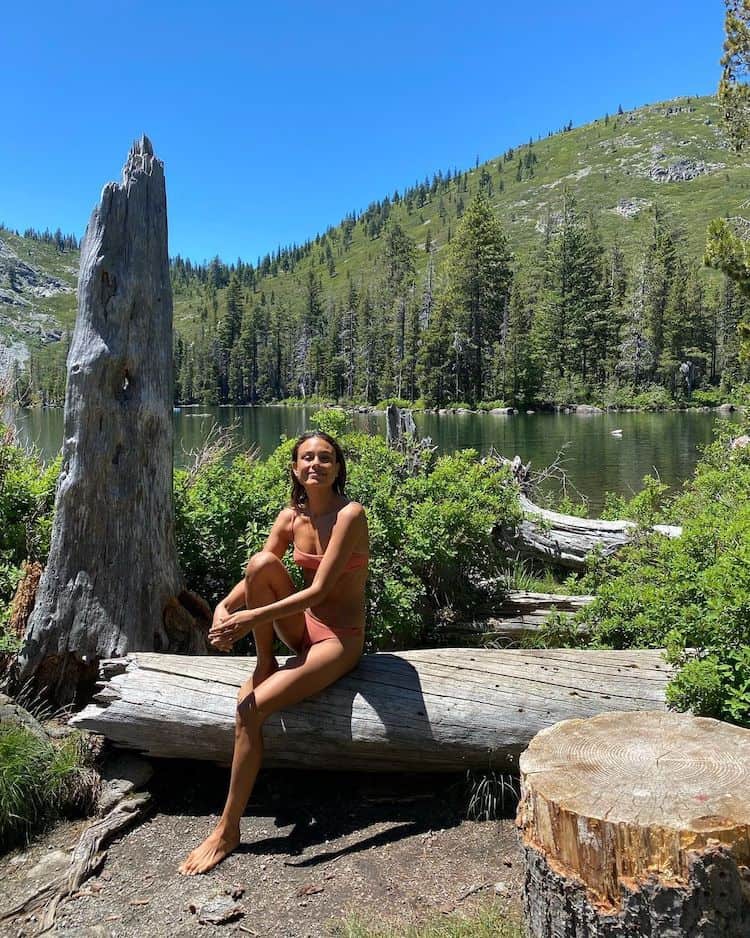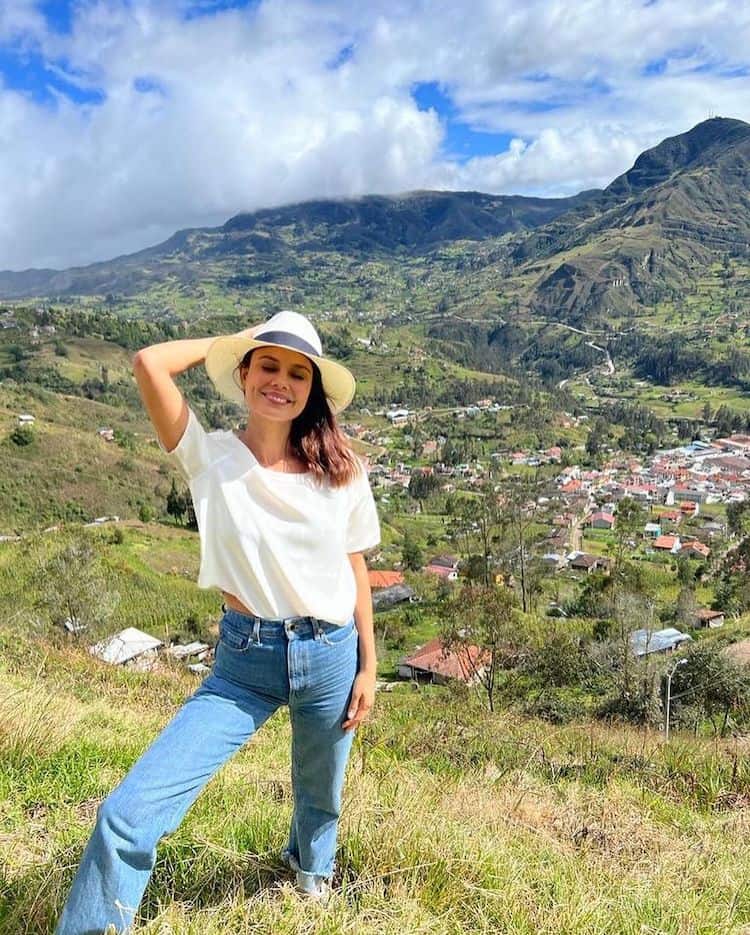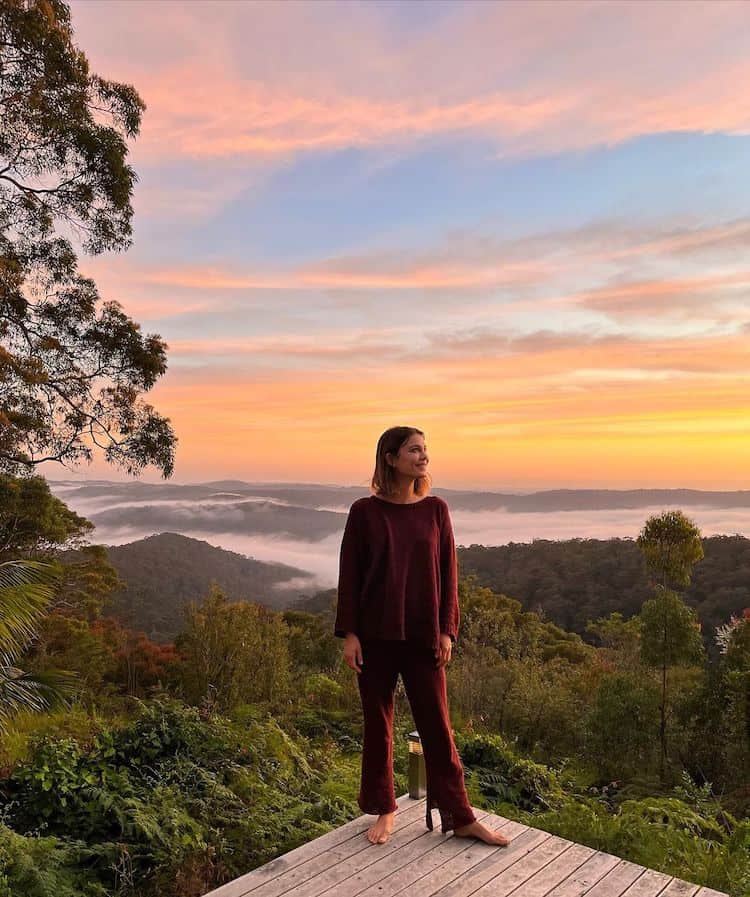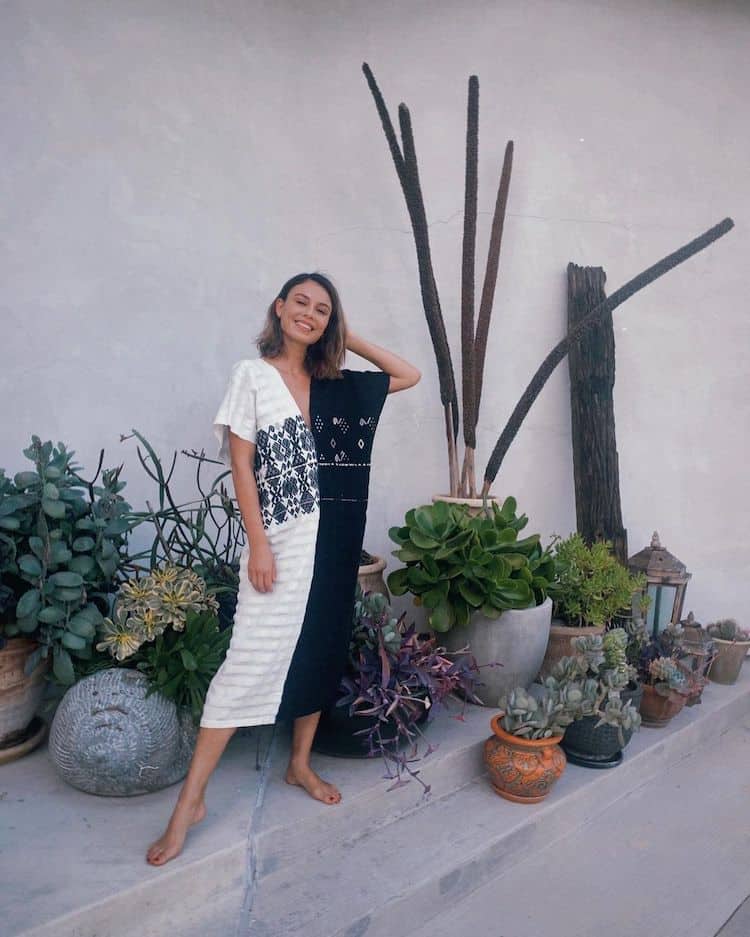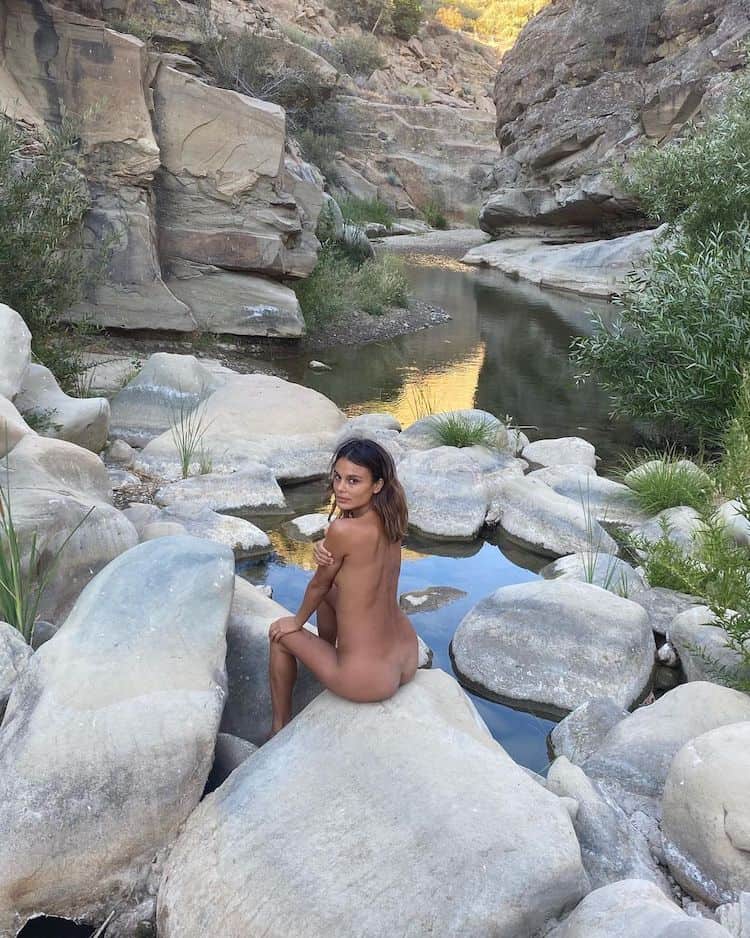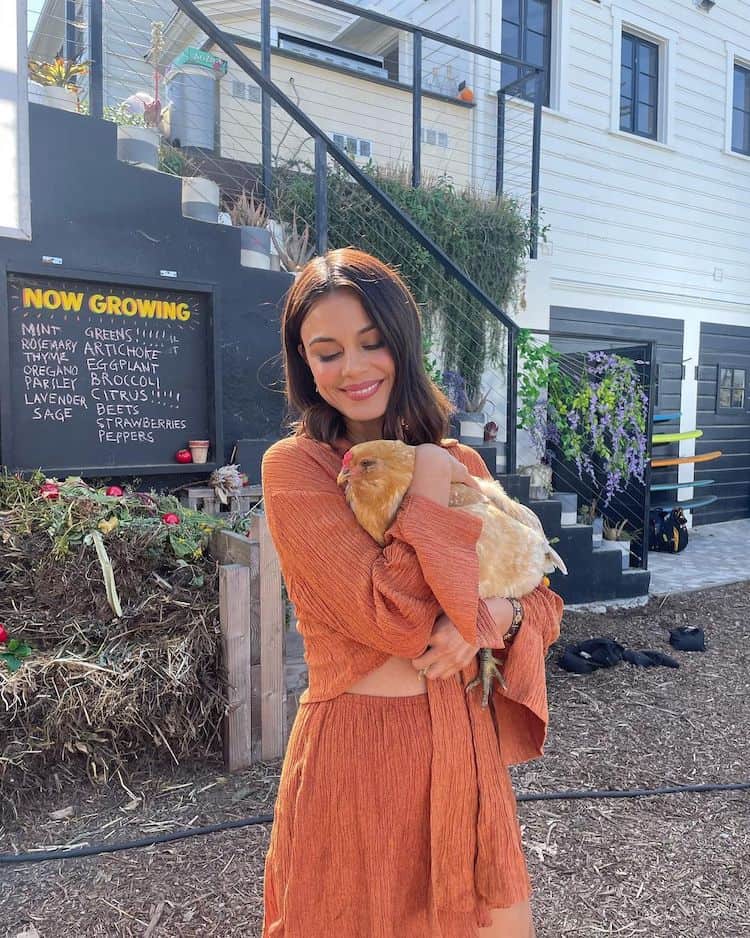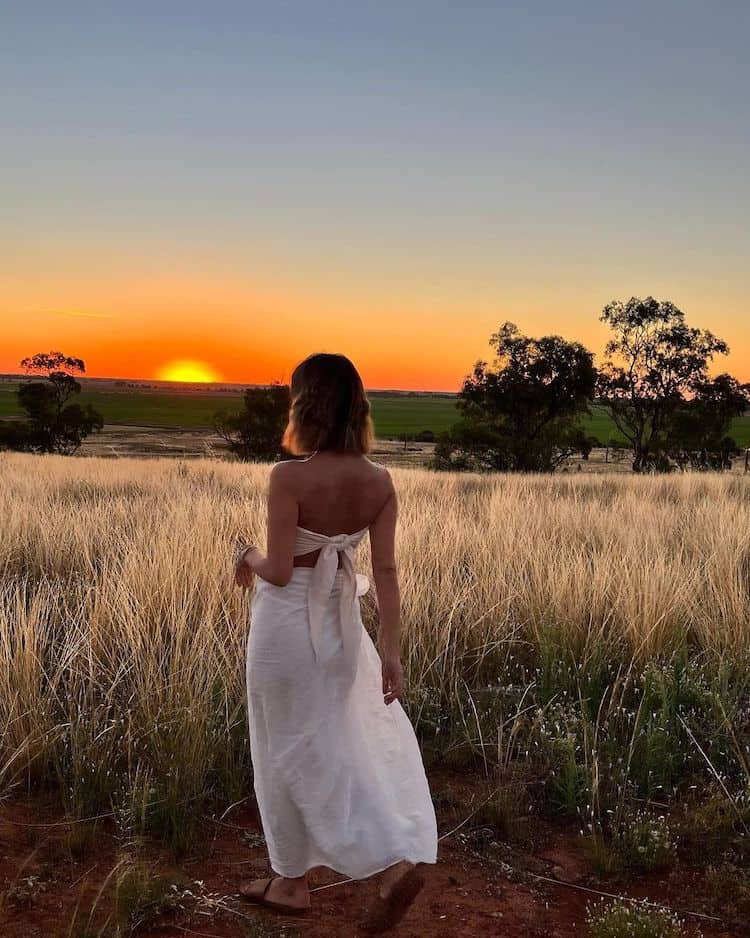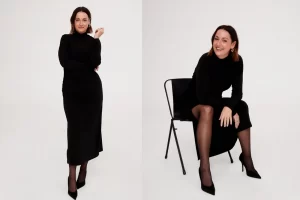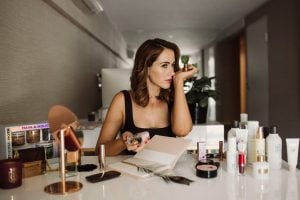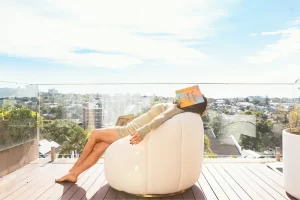I try to be mostly vegetarian. I call myself a waste-atarian – I find my body needs as much protein as possible, so if I’m out to dinner and there’s meat on the table that someone has ordered but no one has eaten, I’ll finish it so it doesn’t go to waste.
I am really inspired by blogger and former model Gemma Davis aka The Compassionate Road. She’s a fellow Australian, and around the time of the fires I got very into her blog and her recipes. I think that, in the future, we are going to look back in disbelief at this time when humans enslaved so many animals to get protein, without thought for their treatment or on the effect this would have on the earth. Gemma’s blog and podcast really inspired me to move towards being mostly plant-based. I am passionate about regenerative agriculture, so if I find beef that has been regeneratively farmed, I can happily eat that meat. I know that animal has had a beautiful life, and has been a part of a regenerative ecosystem. It is rare to find meat raised that way, though, and if you do find it it’s expensive. So rather than following any strict ‘diet’ which is meat-free, I consider the times I get to eat that sort of meat a complete treat and will always partake when I come across it.
When I am cooking at home, I try to make sure over 80% of what I eat has been grown in California. I am very lucky in that mostly I get to eat food that comes from within about 20 kilometres of where I live. In an ideal world, we should all be eating food that is locally grown, and not food that has travelled from another country wrapped in plastic and styrofoam. That’s best nutritionally and environmentally, of course, but eating and living like this goes a long way in terms of beauty, as well. Your body knows when it’s getting the best nutrients, and it shows.”

